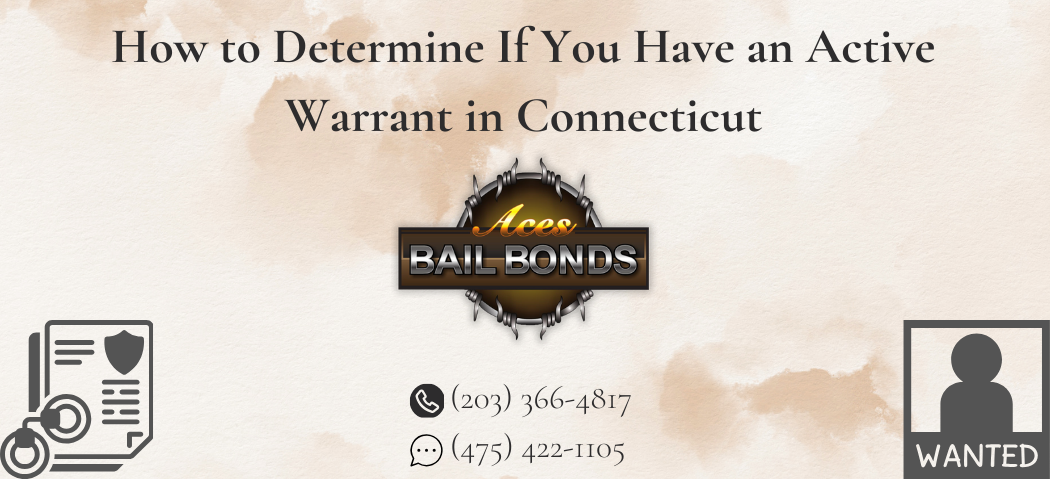.
How to Determine If You Have an Active Warrant in Connecticut
In Connecticut, an active warrant can create serious legal and personal consequences. Whether from a missed court date, unpaid fines, or unresolved charges, knowing how to check for warrants in CT is crucial. Ignoring a warrant doesn’t make it disappear—it can lead to arrest, job complications, and added penalties.
This guide explains how to find out if you have a warrant in Connecticut, the legal risks of outstanding warrants, and the steps you should take to resolve them.
What Is a Warrant in Connecticut?
A Connecticut warrant is a court-issued legal document authorizing law enforcement to take action. Warrants generally fall into three categories:
-
Arrest warrants – issued when law enforcement has probable cause for an arrest.
-
Bench warrants – often issued if you fail to appear in court or violate probation.
-
Search warrants – allow law enforcement to search property for evidence.
Each type of warrant carries serious implications, but arrest warrants and bench warrants are the most common for individuals concerned about their legal status.
Why Active Warrants Matter
Having an active warrant in Connecticut can affect your life in multiple ways:
-
You may be arrested during routine traffic stops.
-
Warrants can show up in background checks, limiting job opportunities.
-
Travel restrictions or unexpected arrests can disrupt your personal and professional life.
Addressing a warrant promptly protects your legal rights, financial stability, and peace of mind.
How to Check for Active Warrants in Connecticut
1. Use the Connecticut Judicial Branch Website
The Connecticut Judicial Branch Case Look-Up tool is the fastest way to check if you have a warrant.
Steps:
-
Visit the CT Judicial Branch website.
-
Navigate to Case Look-Up.
-
Enter your name and date of birth.
-
Review the results for any open cases or active warrants.
2. Contact the Court Directly
If you prefer a personal approach, you can call or visit the court where your case might be filed.
Steps:
-
Identify the court connected to your alleged offense or residence.
-
Call the clerk’s office and ask if any warrants are issued in your name.
-
Be ready to provide identification details for verification.
Court staff can confirm if a warrant exists and explain your next steps.
3. Consult a Connecticut Criminal Defense Attorney
An attorney can:
-
Check your warrant status.
-
Explain the legal consequences.
-
Represent you in court to minimize penalties or negotiate bail.
If your case is complex, consulting a lawyer is the safest route to protect your rights.
What to Do If You Have an Active Warrant in CT
If you confirm a warrant exists, take these steps immediately:
-
Do not ignore it – waiting only makes the situation worse.
-
Contact a lawyer – legal guidance ensures you respond correctly.
-
Follow court instructions – appear in court when required and comply with conditions.
How to Clear a Warrant in Connecticut
Clearing an active warrant usually involves:
-
Appearing before the court to address charges.
-
Paying fines or fees tied to the case.
-
Complying with conditions such as probation or community service.
In some cases, your attorney may arrange for you to voluntarily appear in court, which can show good faith and help reduce penalties.
How to Prevent Future Warrants
-
Track court dates: use reminders and calendars to avoid missing hearings.
-
Respond to tickets or citations quickly: ignoring them often leads to warrants.
-
Keep your contact info updated: notify the court of any changes to avoid missed notices.
Conclusion
Knowing how to check for active warrants in Connecticut empowers you to take control of your legal situation. From using the CT Judicial Branch website to contacting the court or hiring an attorney, proactive steps can help you resolve issues before they escalate.
At Aces Bail Bonds, we understand the stress of dealing with warrants and court proceedings. If you or a loved one discover an active warrant, act quickly to protect your rights, avoid unnecessary penalties, and move forward with peace of mind.
📞 Call (203) 344-7483 for guidance and 24/7 Connecticut bail bond services.

